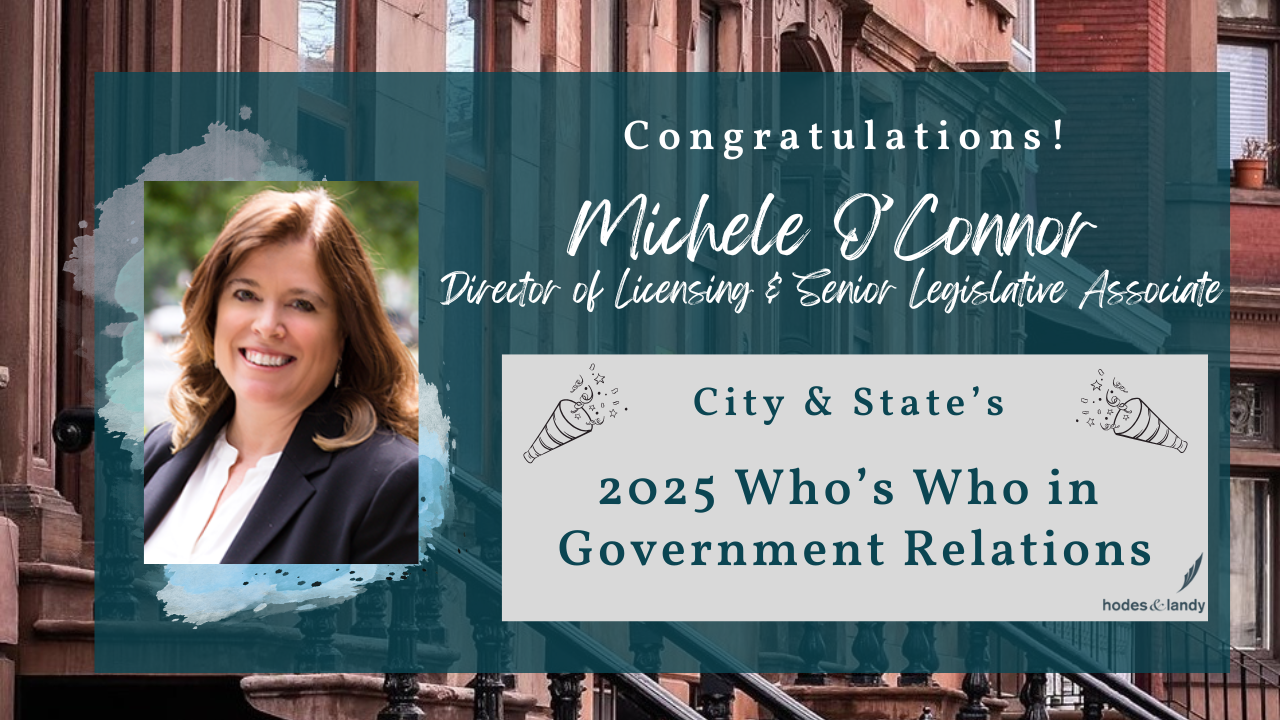
Hodes & Landy is a full-service government affairs firm located steps from the New York State Capitol, with a proven track record of high-quality ethical representation, and exceptional results.
The Gold Standard
At Hodes & Landy, we offer our strategic consulting and advocacy expertise to the most discerning clients. Our comprehensive range of services include direct representation and advocacy, political analysis, legislative and regulatory drafting, grassroots and coalition building, association management, and communications and public relations.

What You Need to Know
The 2025 Who’s Who in Government Relations:
May 05, 2025
Please join us in congratulating Albany veteran Michele O’Connor for her recognition by City & State in their esteemed 2025 Who’s Who in Government Relations!
New York Capital Brief:
January 08, 2026
Happy New Year – Greetings from Albany, NY
As we turn the page on the past year, this newsletter offers a snapshot of the 2025 legislative session – summarizing key actions and setting the stage for what is on the horizon in 2026.
But first, we would like to pause and take a moment to honor and reflect on the impact and legacy of our dear colleague and friend, Ginger Lynch Landy, former President and Partner at Hodes & Landy. We would like to personally thank you for your kind thoughts and support this past year, particularly during December.
Ginger has been part of the Hodes & Landy team for 25 years and will always be remembered for her dedication, kindness, strong leadership, and passion for this work. We intend to honor Ginger’s legacy and persistence and assure you that the level of Hodes & Landy services and commitment to our clients will continue, just as they have before. We appreciate that she personally chose the Hodes & Landy team to carry on her remarkable legacy, and we are sincerely thankful for the opportunity to serve our clients.
We look forward to working with you in 2026 – it is shaping up to be quite ...


